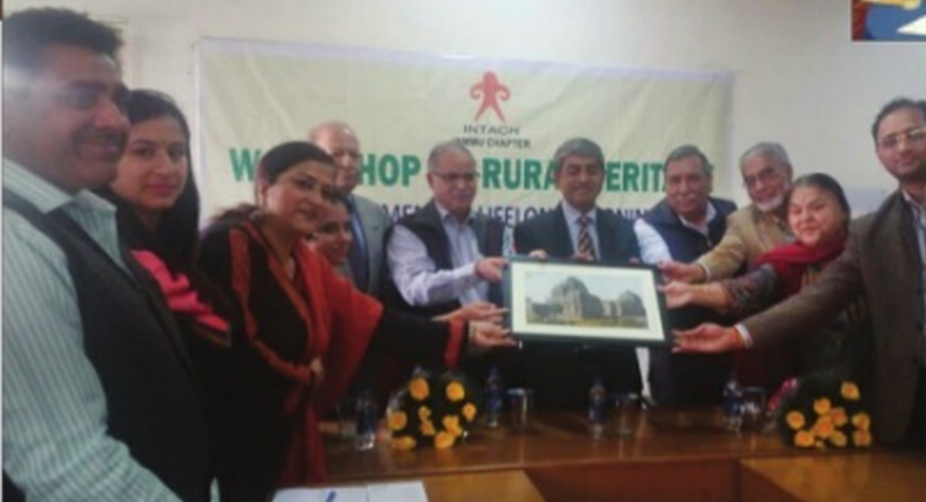Every year World Heritage Week is celebrated across the world from 19- 25 November with the objective of increasing awareness about the importance of cultural heritage, both tangible and intangible, and its preservation.
The aim is also to encourage people about the preservation and safe upkeep of monuments across the country. With the expansion of cities and shrinking of village areas, the rural heritage of our Indian landscape is under tremendous threat and thus it is very necessary to protect and preserve the variety of priceless cultural heritage and historical monuments.
Advertisement
The youth of the country, especially students of schools and colleges, need to be included in this process so that people become aware about our culture and heritage. In this vein, the department of lifelong learning, University of Jammu, organised a one-day workshop on “Rural Heritage” for students of the Master’s in rural development course, in collaboration with Indian National Trust for Art and Cultural Heritage in the university campus last week. Hemant Sharma, IAS, secretary of co-operatives, Jammu and Kashmir government was the chief guest for the function while Desh Bandhu Gupta, dean of academic affairs, Jammu University was the guest of honour. Sharma, who elaborated on the importance of rural heritage, underlined the need for its conservation as that promotes the psychological well-being of rural communities. He also underlined the need to create and stimulate awareness among the general public of the richness, variety and importance of India’s rural heritage.
Gupta, in his address, said that conservation of tangible or intangible heritage is very important and there is a dire need to assist rural communities in the conservation, sustainability and management of their cultural assets. He said that the students of rural development need to undertake programmes of revival and enhancement of heritage assets in such a way as to foster local economic development; provide improvement in civic and other infrastructure, encourage improvements in education, healthcare and gender equality, and in general, promote the betterment of the concerned communities. Professor Poonam Dhawan, former dean of academic affairs, also focused on the need to take steps for the preservation and conservation of assets in rural areas, and of those in non-rural areas that represent linkage with rural origins, in full cooperation with local communities and stakeholders.
During the course of the workshop, CM Seth, former chairman of the State Pollution Control Board, presented a lecture on “Rural natural heritage and rural development”. Mahesh Koul, author and columnist, spoke on the India’s rich heritage while Kirpal Singh, curator, Dogra Art Museum, Mubarak Mandi, deliberated on the importance of Jammu’s rural heritage. On the other hand, Suresh Abrol, owner and curator, Shashwat Art Gallery spoke about the role of individuals in the promotion and conservation of cultural heritage. Altaf Hussain, convenor of Intach Kashmir, spoke about the state’s rich heritage and the conservation efforts being undertaken to preserve it.
The students interacted with the resource persons and asked many questions. “In this one-day workshop, students realised that even though the preservation of important natural, cultural and historic sites seems challenging, there are plenty of things that they can do including partner with some organisation and get involved in conservation activities, world heritage promotion, mobilisation of resources and financial support,” said SM Sahni, convenor of Intach, Jammu Chapter. He added that they could also work as volunteers and practice sustainable tourism by respecting local culture and customs and not damaging sites or littering when visiting. “Students can also help in spreading awareness of the importance of preserving these invaluable sites by sharing news and links through social networking sites”, said Shikha, a student. She went on to add that they have to work together to conserve cultural and natural heritage and in turn, preserve our world for ourselves and future generations. Pallavi Sachdeva conducted the programme and Kuldeep Wahi, Intach life member, presented a formal vote of thanks.











